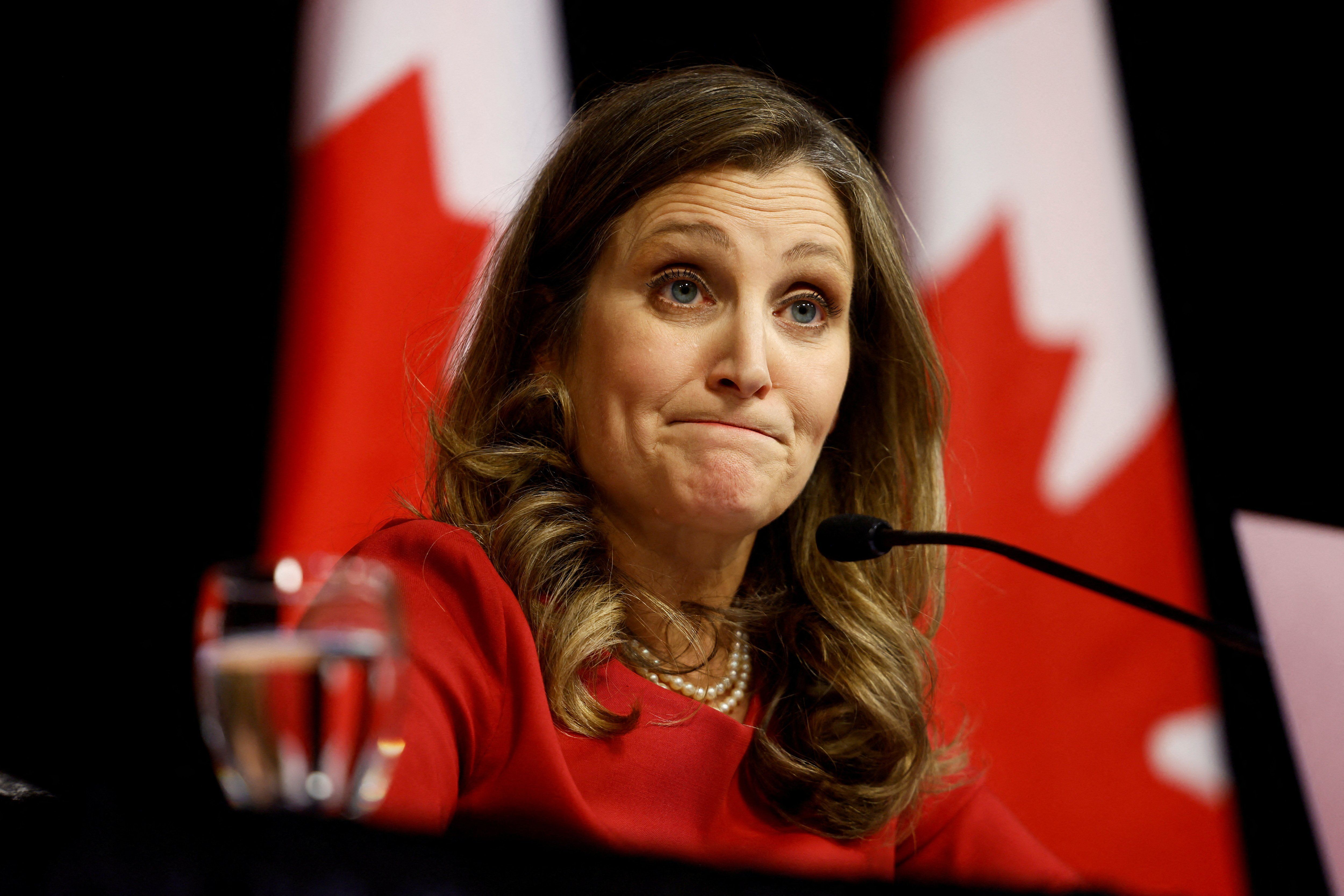Canada’s finance minister and deputy prime minister, Chrystia Freeland, resigned from cabinet Monday morning over differences with Prime Minister Justin Trudeau on how Canada should deal with incoming US President Donald Trump.
The move, coming hours before Freeland was supposed to deliver a fall economic statement for the government, has thrown the political class into turmoil and saw the Canadian dollar fall toits lowest level since April 2020. It comes at a perilous time, as Trump has threatened to bring in punitive tariffs of 25% on Canadian imports. Canada currently does 75% of its trade with the United States, including in key sectors like energy, lumber and automobiles.
In a letterposted to X, Freeland stated that “Our country today faces a grave challenge. We need to take that threat extremely seriously. That means keeping our fiscal powder dry today, so we have the reserves we may need for a coming tariff war. That means eschewing costly political gimmicks, which we can ill afford and which make Canadians doubt that we recognize the gravity of the moment.”
Last week, news leaked that Freeland and the PM were at odds over a proposed two-month sales tax holiday and $250 “relief cheques” cheques to “working Canadians” to offset the effects of inflation — the gimmicks Freeland referenced. The two measures would have added$6.28 billion to the country’s deficit, rumoured to be as high as $55 billion, and were heavily criticized as a ploy to buy votes.
Freeland stated that Trudeau asked her on Friday to resign as finance minister and offered her another portfolio. It was reported that she was asked to manage US-Canada relations, albeit without portfolio, a major demotion. Instead, she chose to step down.
It was rumouredlast week that Trudeau wanted to replace Freeland at finance with former Bank of Canada and Bank of England governor Mark Carney, to whom he had given a post of special economic advisor in September.However, on Monday Trudeau named long-term loyalist Dominic LeBlanc, Minister of Public Safety, to the finance portfolio. Mr. LeBlanc accompanied Trudeau to Mar-a-Lago two weeks ago, and is considered one of Trudeau’s most loyal allies in cabinet.
Freeland had been a minister in the Trudeau’s government since first winning office in 2015 and served as chief negotiator of USCMA during Donald Trump’s first term as President. In 2019 Trudeau appointed herDeputy Prime Minister, and then also made her finance minister in 2020, generating speculation that she was heir apparent for the top job.
Why this matters After 9 years in power, the Liberals are trailing badly in the polls and in August lost the formal support of the New Democratic Party, meaning their minority government could fall at any time. An election must be held by October 25, 2025.
We’ll be watching whether Freeland’s exit pushes the opposition to bring the embattled government down, provoking an election in which the Conservatives are expected to take power and would change the dynamic with the American administration. While the leader of the NDP, Jagmeet Singh, called for Trudeau to resign on Monday, he did not say that he would not support the Liberals under a different leader. Trudeau is convening his caucus at 5 pm Tuesday evening, fuelling speculation that he is “taking the temperature” before deciding whether or not to call it quits and kick off a leadership race - which would buy time for the Liberal party to attempt a comeback.
